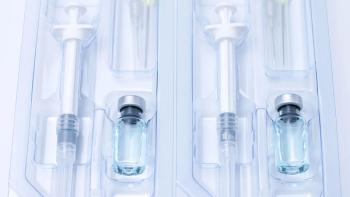
- BioPharm International-07-01-2003
- Volume 16
- Issue 7
Outsourcing Outlook: A Capacity for Excess
A Dutch biotech company?s $100 million investment puts the spotlight on biomanufacturing capacity
DSM, based in Heerlen, the Netherlands, is moving ahead with construction of a commercial-scale biomanufacturing facility in Montreal, Canada. The Société Générale de Financement du Québec (SGF), a quasi-governmental agency — and part owner of the enterprise — that helped finance the original DSM Biologics facility there will finance 40% of the investment.
The new facility’s design calls for four mammalian cell culture bioreactors with a total capacity of 60,000 L plus full downstream processing capabilities. The plant is being built in two phases; the first, at a cost of more than $100 million, is expected to be online by mid-2005. Although this phase includes the construction of the building and the necessary infrastructure for all four bioreactors, only two 15,000-L units will be installed. No target date has been given for adding the second 30,000 L of capacity.
This DSM investment represents the biggest commitment to new cell culture capacity since Zurich-based Lonza announced two years ago that it was building 60,000 L (three 20,000-L units) of capacity at its Portsmouth, NH location. That capacity is expected to come online in mid-2004 and is now 90% committed; Lonza announced in May that it had signed a large-scale monoclonal antibody supply agreement with an unnamed, top 10 pharmaceutical company.Another major contractor adding cell culture capacity is Diosynth, whose new facility in Oss, the Netherlands, will have an 18,000-L bioreactor. Among other major contract biomanufacturers, UK-based Avecia has focused on new microbial capacity, while Dow Chemical seems to be holding off on new capacity commitments at its Rhode Island facility.
Capacity Landscape
Despite high-profile announcements such as these, getting a clear picture of the availability of contract mammalian cell culture capacity is tricky. Companies are moving in and out of the market as their strategies or in-house capacity requirements change. Sponsors with excess capacity, including GlaxoSmithKline, Abbott Laboratories, Idec Pharmaceuticals, and Abgenix are actively selling their excess capacity. Other companies with surplus capacity are using the manufacturing capability as leverage when negotiating alliances.
It is clear, however, that the catastrophic supply shortfalls that some observers were forecasting are not coming to pass. According to Howard Levine, president of BioProcess Technology Consultants, those projections were often based on faulty assumptions regarding dosing requirements, approval rates, and the market’s ability to absorb all of the new products.
What is in short supply, according to Levine and others, is contract capacity for process development and biomanufacturing of clinical trial materials. The clinical business can be very volatile — both Lonza and Cambrex have suffered significant revenue and earnings shortfalls this year because of clinical project cancellations and delays — but demand is high, even in this difficult funding environment for early-stage companies.
One major company that is focusing on the clinical market is Cambrex Bio Science. According to its president, Peter van Hoorn, Cambrex Bio Science recently opened a new process development laboratory at its Baltimore, MD, location, and is installing a 500-L stirred tank mammalian cell culture bioreactor that will be in operation at year’s end. The company is also installing a 2,500-L microbial reactor train at its facility in Hopkinton, MA, which will come online in mid-2004.
Smaller companies are also adding clinical cell culture capacity. In May, Belgium-based Henogen acquired another Belgian company, 4C Biotech, which provides clinical-scale biomanufacturing. Also that month, Laureate Pharma installed a 200-L bioreactor at its Princeton, NJ, location. Laureate also plans to complete installation of a new 2,000-L bioreactor later this year.
Baxter Expanding Parenteral Operations
One segment of the market that seems assured of having plenty of capacity is contract parenteral manufacturing. Fill-and-finish contractors are in the midst of a $400 to $500 million investment boom that will substantially increase filling and lyophilization capacity.
Baxter Pharmaceutical Solutions (BPS) is the latest to announce a massive investment program. BPS will invest $100 million in the 120,000-ft2 expansion of its parenteral manufacturing capacity, including more filling lines for vials and prefilled syringes, a new lyophilization unit, and laboratory space. The expansion at BPS’s Bloomington, IN, location will nearly double the company’s prefilled syringe capacity, taking it to almost 235 million units annually. The expansion program will be spread over three years, with the initial phase expected to be completed in 2005.
Aside from the scale of the investment, the BPS announcement is significant because it indicates that BPS clients will have access to parent company Baxter Healthcare’s portfolio of formulation and drug delivery technologies for poorly soluble drugs. These include the Nanoedge technologies Baxter licensed from RTP Pharma in 2001 and the controlled release protein and pulmonary delivery technologies the company gained when it acquired Epic Therapeutics in 2002.
It looks as if formulation technology may begin to rival process technology as a competitive factor in the fill and finish sector. With so much investment in capacity, it makes sense that companies will try to differentiate themselves along other dimensions. BPI
Articles in this issue
over 22 years ago
Inside the Outsourcing Relationshipover 22 years ago
Inside Washington: Debate Escalates Over Follow-On BiologicsNewsletter
Stay at the forefront of biopharmaceutical innovation—subscribe to BioPharm International for expert insights on drug development, manufacturing, compliance, and more.




